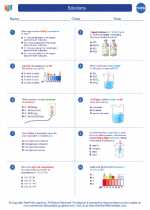Production of Biogas
The production of biogas involves several key steps:- Feedstock Preparation: Organic materials such as animal manure, crop residues, and food waste are collected and prepared for digestion.
- Anaerobic Digestion: The prepared organic materials are placed in a sealed container, called a digester, where anaerobic bacteria break down the organic matter, producing biogas as a byproduct.
- Gas Collection: The biogas produced during anaerobic digestion is collected and stored for use as a renewable energy source.
- Gas Purification: The biogas may undergo purification processes to remove impurities, resulting in a cleaner gas suitable for use as a fuel.
Composition of Biogas
The composition of biogas typically consists of:- Methane (CH4): The primary component of biogas, comprising 50-70% of the gas mixture.
- Carbon Dioxide (CO2): The second most abundant component, making up 30-50% of the gas mixture.
- Trace Gases: Small amounts of other gases such as hydrogen sulfide, water vapor, and nitrogen may also be present in biogas.
Applications of Biogas
Biogas has several practical applications, including:- Energy Generation: Biogas can be used as a fuel for generating electricity and heat, providing a renewable energy source for various industrial and residential purposes.
- Cooking and Heating: In many rural areas, biogas is used for cooking and heating, offering a cleaner and more sustainable alternative to traditional fuels such as wood or charcoal.
- Transportation Fuel: Biogas can be processed to remove impurities and used as a renewable fuel for vehicles, contributing to reduced greenhouse gas emissions.
Environmental Benefits
The production and use of biogas offer several environmental benefits, including:- Greenhouse Gas Reduction: By capturing methane from organic waste and using it as a fuel, biogas helps reduce greenhouse gas emissions, mitigating climate change impacts.
- Waste Management: Biogas production provides a sustainable means of managing organic waste, reducing the release of methane into the atmosphere from decomposing organic matter.
- Renewable Energy Source: As a renewable energy source, biogas contributes to diversifying the energy mix and reducing reliance on non-renewable fossil fuels.
Study Guide for Biogas
To study the topic of biogas, consider the following key points:- Understand the process of anaerobic digestion and the role of microorganisms in biogas production.
- Learn about the composition of biogas and the factors that influence the methane content in the gas mixture.
- Explore the various applications of biogas, including its use in electricity generation, cooking, heating, and transportation.
- Examine the environmental benefits of biogas production and its role in sustainable waste management and renewable energy utilization.
- Consider the challenges and potential improvements in biogas production and utilization, such as enhancing gas purification methods and addressing scalability issues.
◂Chemistry Worksheets and Study Guides High School. Solutions
The resources above cover the following skills:
CHEMISTRY
Matter and Its Interactions
Use mathematics and computational thinking to express the concentrations of solutions quantitatively using molarity.
Develop and use models to explain how solutes are dissolved in solvents.



